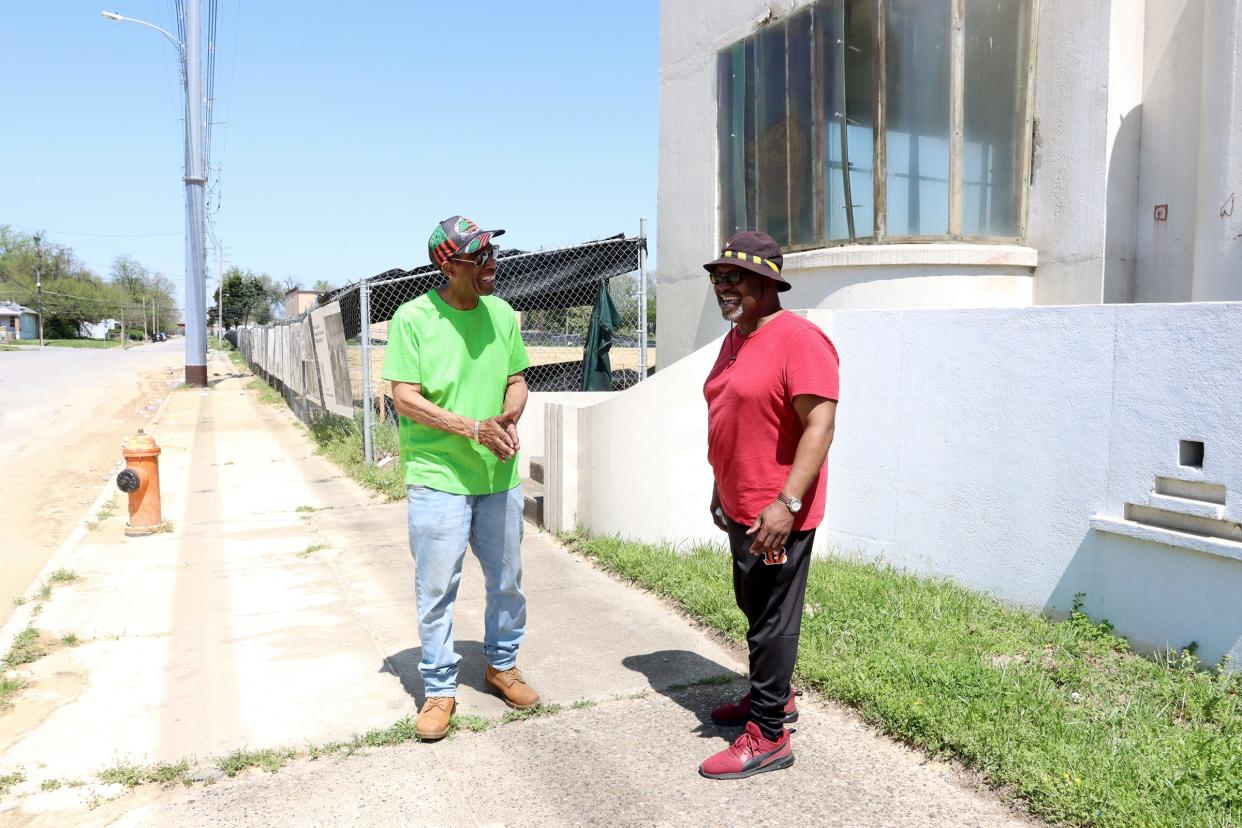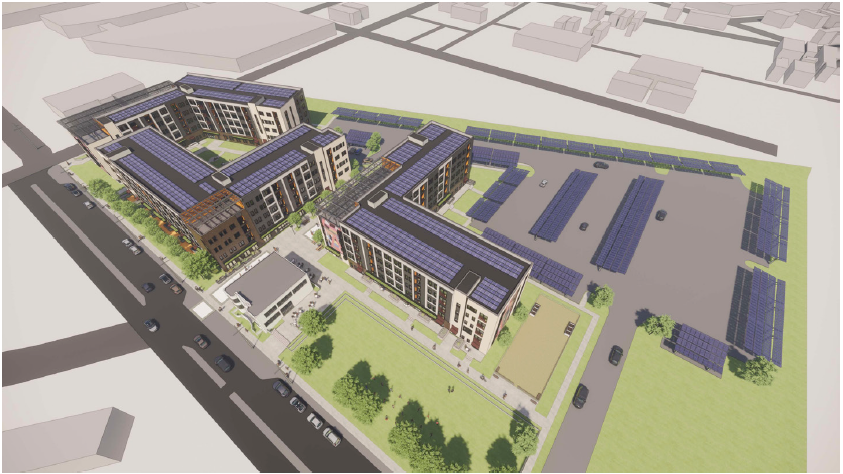How a west Louisville housing development is 'changing the culture of this community'
On a recent rainy morning in west Louisville, brown mud seeped from a long-contaminated site, like fluid from a wound that's still healing.
The site — formerly home to the Rhodia chemical plant — has been mostly neglected for three decades. But soon, new buildings are expected to pop up on the cleaned up land, rejuvenating both the property and the communities that surround it.
Earlier this year, development group Re:Land filed plans for a 233-unit affordable apartment complex with space for a daycare center, café and other businesses at the site on the edge of Algonquin and Park Hill — two impoverished, majority Black neighborhoods.
Re:Land won a bid to develop the city-owned property in 2020 and has spent the past few years working with community members to decide how it should best be used.
That's something those involved say they aren't always used to when it comes to major developments in underserved neighborhoods.
"It creates morale, motivation and gives people the opportunity to be involved and engaged in changing the culture of this community," longtime Park Hill resident Ron Hargrove said of the community engagement.
Hargrove is one of more than 30 area residents who serve on a Community of Opportunity Advisory Board that's guiding the development, and he added the group's work "is going to be a legendary thing. Not for us, but for our families and the younger generation that's coming up."
Chris Posey, one of four partners at Re:Land, said the development group formed in the wake of protests over the police killing of Breonna Taylor, with the goal of improving underserved neighborhoods by empowering their residents.
All four partners are men of color who want community members they work with to see people who look like them in positions of leadership, Posey said. And they've been intentional about involving community members in every step of the Rhodia development process.
"When we go fundraising and talk to the banks, we go with (them)," said Bruce Sherrod, a member of the community advisory board. "It gives everyone a chance to be in the room, to be a representative."

Sherrod lives in Parkway Place, a public housing complex across the street from the Rhodia site. He said he appreciates Re:Land's founders seeing residents there as an asset, not "in a bad light."
In its bid to the city, Re:Land expressed goals to eventually help redevelop the Parkway Place property, along with another parcel west of it. But for now, the company is focused on half of the Rhodia site, which recently underwent remediation.
Re:Land has already secured a majority of the $60 million it needs to move forward with the apartment complex, which is expected to break ground near the end of this year, Posey said. And the company hopes to also soon start work on a "community village" for pop-up businesses along 11th Street.

The community advisory board is leading the community village effort, Posey said, and plans call for creating some co-operative businesses that are community owned.
"We have to recapture the Black ownership that we lost 60 years ago in this city" during urban renewal, which destroyed Black-owned business hubs in the West End, said Kathleen Parks, a member of the community advisory board. "This Black economic village is a way to restart that dream that was lost."
The rest of the Rhodia site will be remediated at a later date. And Re:Land — in collaboration with the community — is still determining how it will be developed.
"When I think about what it means to be part of a thriving community, it means everybody should have a voice in what happens in their community," said Brandy Kelly Pryor, who led community engagement efforts for Re:Land.
In an area that's been neglected for so long, she added, people who've long felt their voices weren't heard need to heal as much as the previously contaminated land.
"This (work) is also starting to remediate some of that," Kelly Pryor said.
Reach reporter Bailey Loosemore at bloosemore@courier-journal.com, 502-582-4646 or on Twitter @bloosemore.
This article originally appeared on Louisville Courier Journal: How a housing development will transform two Louisville neighborhoods
